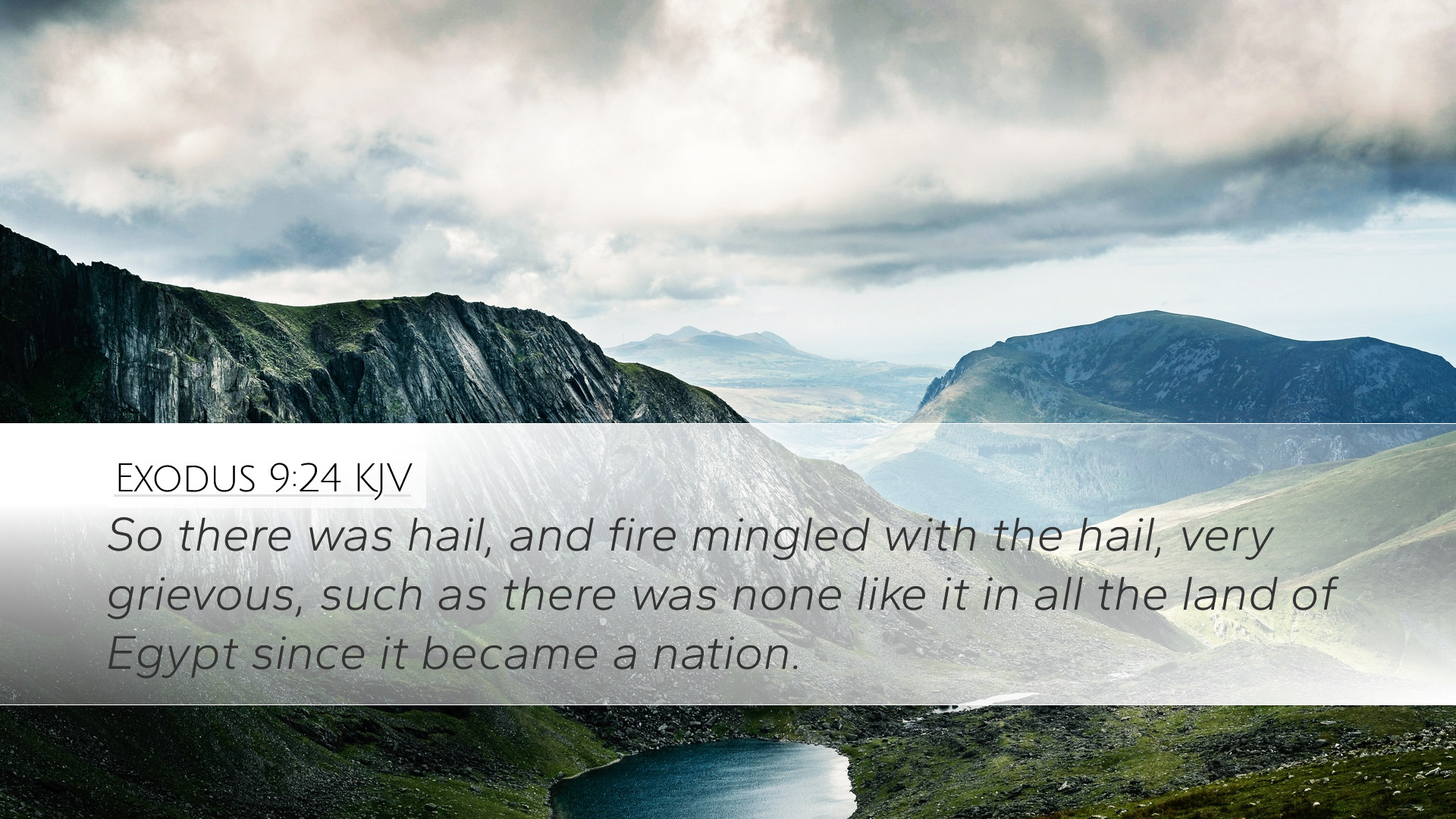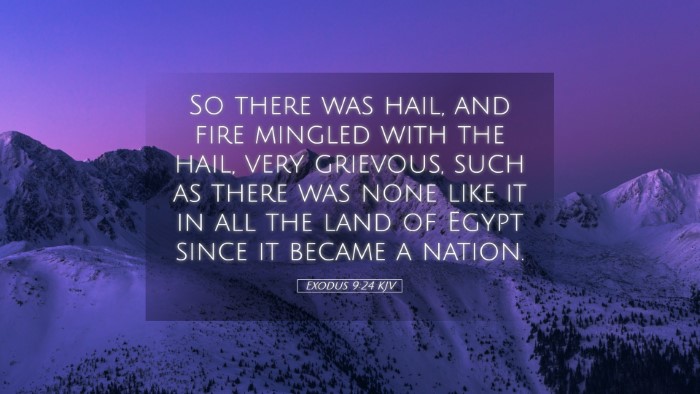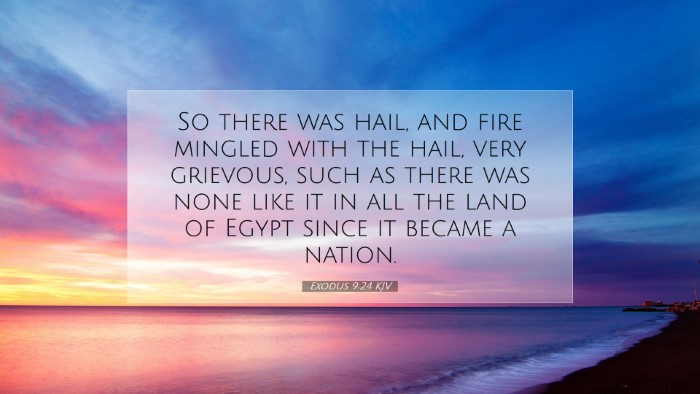Commentary on Exodus 9:24
Exodus 9:24: "So there were hail, and fire mingled with the hail, very grievous, such as there was none like it in all the land of Egypt since it became a nation."
Introduction
The passage of Exodus 9:24 presents the catastrophic event of the seventh plague that befell Egypt as a consequence of Pharaoh's refusal to heed God's command. This commentary draws insights from renowned public domain scholars including Matthew Henry, Albert Barnes, and Adam Clarke, providing a comprehensive interpretation of this scripture for pastors, students, theologians, and Bible scholars.
Background of the Plagues
The context of Exodus 9 encompasses a series of plagues that were divinely orchestrated to demonstrate God's power and sovereignty over Egypt's gods and Pharaoh. The plagues serve as a judgment against the oppression of the Israelites and as a declaration of God's commitment to liberate His people.
- Divine Judgment: Each plague symbolized God's authority, culminating in severe manifestations of His wrath against Pharaoh's obstinacy.
- Revelation of Glory: As noted by Adam Clarke, these plagues were also meant to reveal God's glory to both the Egyptians and the Israelites, showcasing His supremacy.
Detailed Analysis of Hail and Fire
The description of hail mixed with fire is significant and underscores the terror of this plague. Matthew Henry emphasizes that the combining elements not only represents God's control over nature but also signifies the chaotic and destructive power that results from divine displeasure.
- The Nature of the Plague: Albert Barnes comments on the unusual nature of this occurrence, signifying an event that is both miraculous and horrifying, designed to instill fear.
- Symbolism of Hail: Hail often represents judgment in Scripture, seen here as a tool for God’s vengeance, demonstrating that natural phenomena can reflect divine intent.
- Fire’s Purpose: Fire mingled with hail serves as a dual reminder of purification and destruction, highlighting God's ability to render judgment while simultaneously purifying His people.
Theological Insights
Theologically, Exodus 9:24 raises critical reflections on divine justice and mercy. The enormity of the event insists on the ease with which God can disrupt the natural order to fulfill His purposes.
- God's Sovereignty: The verse compels acknowledgment of God’s ultimate authority over creation. As articulated by Clarke, everything in nature responds to His command, reflecting His sovereignty.
- Human Rebellion: Pharaoh's repeated refusal represents humanity's obstinacy in rebelling against divine instruction, a recurrent theme throughout the scripture. Barnes highlights the moral implications of such rebellion leading to dire consequences.
- Call to Repentance: Despite the severity of the plague, God's overarching intention remains rooted in His desire for Pharaoh to repent and submit to His will, showcasing mercy even in judgment.
Pastoral Reflections
For pastors, this passage serves as a poignant reminder of God's righteous judgment and the hope for redemption. The phenomenon of hail and fire draws a parallel to contemporary struggles with sin and the call to repentance.
- Sin and Consequences: Just as Egypt faced dire consequences for its unyielding heart, modern believers are reminded of the serious nature of sin and the ultimate accountability to God.
- Encouragement to Trust in God: In the face of life’s calamities, Echoing Henry's reflections, believers are encouraged to understand that adversity serves a divine purpose and is used for spiritual growth.
- Hope in Divine Control: The chaotic elements of this plague remind believers that despite the tumultuous nature of circumstances, God is in control and directs all things for the good of those who love Him.
Conclusion
Exodus 9:24 encapsulates a crucial moment of divine retribution, reflecting the gravity of sin and the seriousness of God's response. Through the insights of respected commentators, one realizes that this passage is not merely historical but also profoundly relevant to contemporary faith. Each reader, pastor, scholar, and student is invited to reflect deeply on their standing with God, understanding that His judgments are both a call to fear and a call to grace.


